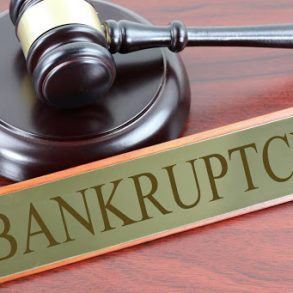This credit crisis has got everyone in the arm. It causes the bank to reduce again significantly to whom they lend. In fact, the bailout received by banks from the government was used to support the bank’s balance sheet instead of lending it to business. But it was not entirely a bank mistake. Business is afraid to expand or employ because they do not know what the government will do with respect to health care or other programs that can extort profits.
This causes a dilemma because business still has operations to fund. Getting a bank loan has become a difficult proposition. There is a financial method that is actually quite old but has come out of pleasure because credit is easy to get (pre crisis). This is the ability for businesses to get financing from receivables themselves. This sounds a bit strange but either valid and legal. The concept is called factoring.
As part of doing business, many companies will extend credit to their customers. This is done usually as an incentive for businesses to get sales. In fact, many of the larger retailers such as Home Depots may need their suppliers to extend credit. So when credit is extended, from an accounting point of view, it should be noted as done on company books as receivables.
Receivables can be very good from the perspective of getting sales but they leave the company in the connection. Receivables often for thirty days but companies need to have cash to pay for operations today, tomorrow, and the next day, and every day afterwards. That thirty periods place the company in situations lack cash. When good time, the company will contact the bank and request a short-term loan. When credit flowing banks all want to provide this financing. Today, credit is not so easy to obtain, at least not from the bank.
So a factor can come to save by advancing the company’s nominal value of receivables minus costs to be charged. It often wins because the factor makes money through costs and the company has access to cash that is needed. Unlike banks, factors become a collection agent for the company and therefore have their hands involved with business operations. This is profitable because companies can forget the recruitment of the credit department to handle aspects of this business.
Now this is a very simple factoring description. Factors will conduct credit checks on client customers and there are other procedures that need to be done. But when compared to getting loans from banks, steps are usually much easier and faster access to cash is possible. The great thing is that if new sales are generated during this period, the receivables can also be taken into account.
When a business takes a loan from a bank, which produces responsibility for business books. But in fact, the receivables have become an asset and no loan produced. This factor only exchanges one asset (cash) for another (invoice). So the company’s financial position is not negatively affected because it takes more debt. There is no debt here. Again, this is an asset exchange.
Factoring receivables not for every company. Even the cost is usually significantly higher than the interest rate that will be charged a bank. But remember, a business will turn to factors because it cannot get financing from the bank. Furthermore, these factors provide services that should be handled by the company, i.e., collect money from client customers. In the end it could be a good setting.







